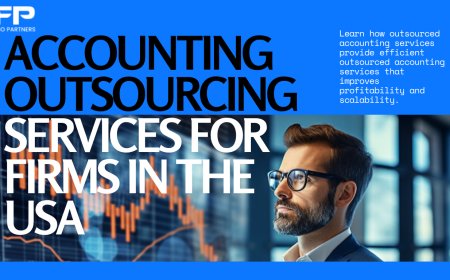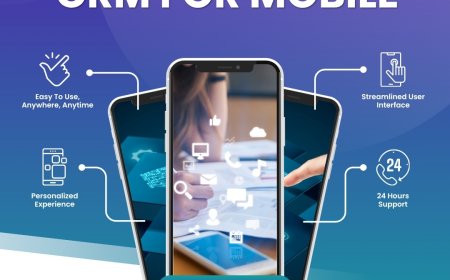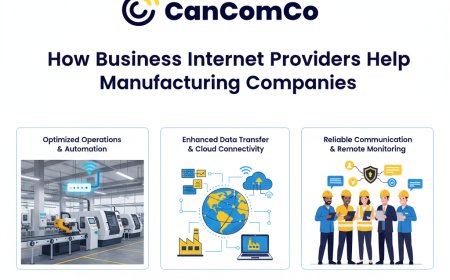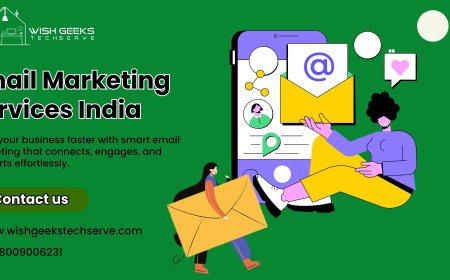The Ultimate Guide to B2B Data Providers: How to Choose the Right Partner for Business Growth
Discover how the right B2B data providers can transform your lead generation, sales, and marketing strategy. Learn what to look for, key benefits, challenges, and top trends in the data-driven B2B landscape.

In todays hyper-competitive digital marketplace, data is the fuel of B2B growth. From identifying high-value prospects to personalizing outreach and driving conversions, the success of modern businesses relies heavily on accurate and actionable data. This is where B2B data providers come in offering businesses the insights they need to reach the right audience, at the right time, with the right message.
But with so many providers available, how do you know which one to trust? And more importantly, how can you ensure your investment in data delivers real results?
This guide breaks down everything you need to know about B2B data providers: what they do, the benefits they offer, key challenges, top trends, and a framework for choosing the right partner.
What Are B2B Data Providers?
B2B data providers are companies that collect, verify, enrich, and supply business-related data to organizations. This data is used for:
-
Lead generation: Identifying potential customers who match your Ideal Customer Profile (ICP).
-
Market research: Understanding industries, competitors, and trends.
-
Sales acceleration: Equipping sales teams with verified contact details and buying intent signals.
-
Marketing personalization: Crafting targeted campaigns that resonate with specific accounts or decision-makers.
Typical data sets offered by B2B data providers include:
-
Firmographic data: Company size, industry, revenue, location.
-
Demographic data: Job title, seniority, department.
-
Technographic data: Software, tools, or technologies a company uses.
-
Intent data: Buying signals and online behavior that suggest purchase readiness.
Why B2B Data Providers Matter
Without reliable data, businesses face major challenges: wasted ad spend, low-quality leads, irrelevant outreach, and missed opportunities. High-quality B2B data providers solve these problems by delivering accurate, real-time insights that drive revenue.
Heres why they matter:
1. Precision Targeting
Instead of casting a wide net, businesses can target specific industries, geographies, or decision-makers who are most likely to convert.
2. Improved Lead Quality
Verified contact details reduce bounce rates, save sales reps time, and increase conversion rates.
3. Personalized Campaigns
With firmographic and intent data, marketers can tailor messages to each prospects unique needs and pain points.
4. Faster Sales Cycles
When sales teams know exactly who to reach and when, deals close faster.
5. Scalable Growth
B2B data providers enable businesses to expand into new markets and verticals confidently, backed by reliable insights.
Common Challenges with B2B Data Providers
While the benefits are clear, businesses often encounter challenges when working with data providers:
-
Data Accuracy Issues: Outdated or incorrect records can lead to wasted outreach.
-
Compliance Risks: Data must comply with GDPR, CCPA, and other privacy regulations.
-
Integration Problems: Some providers lack seamless integrations with CRM, marketing automation, or ABM platforms.
-
Cost vs. ROI: Premium data services can be expensive, and not every provider delivers on promises.
Businesses must evaluate providers carefully to avoid these pitfalls.
Key Features to Look for in a B2B Data Provider
When choosing the right B2B data provider, consider the following factors:
-
Data Accuracy and Freshness
-
How often is the database updated?
-
Does the provider use manual verification, AI, or crowdsourcing?
-
-
Data Coverage
-
Do they cover your target regions, industries, and buyer personas?
-
Do they provide both firmographic and intent data?
-
-
Compliance and Security
-
Is the provider GDPR, CCPA, and SOC 2 compliant?
-
Do they follow ethical data collection practices?
-
-
Technology Integrations
-
Can the provider integrate seamlessly with your CRM (Salesforce, HubSpot, Zoho, etc.) and marketing tools?
-
-
Customization and Enrichment
-
Can they enrich your existing data with missing fields like email addresses, phone numbers, or job titles?
-
-
Scalability
-
Can the provider support your business as you grow into new markets?
-
-
Customer Support
-
Do they offer training, onboarding, and dedicated account managers?
-
Top Trends Shaping B2B Data Providers in 2025
The B2B data landscape is evolving rapidly. Here are the biggest trends to watch:
1. AI-Powered Data Enrichment
Artificial Intelligence is now used to verify, enrich, and predict buyer behavior in real time.
2. Intent Data Adoption
More companies are relying on intent signals (like keyword searches, content downloads, and competitor research) to identify prospects ready to buy.
3. Predictive Analytics
Providers are moving beyond raw data to deliver predictive insights helping businesses anticipate customer needs before theyre expressed.
4. First-Party Data Prioritization
Due to privacy concerns, businesses are blending provider data with their own first-party data for more reliable insights.
5. Integration with ABM Platforms
B2B data providers are increasingly aligning with Account-Based Marketing (ABM) platforms to deliver hyper-personalized campaigns.
How to Choose the Right B2B Data Provider: A Step-by-Step Framework
-
Define Your ICP (Ideal Customer Profile)
-
List industries, company sizes, geographies, and job titles you want to target.
-
-
Set Your Objectives
-
Do you want more leads, better personalization, or new market expansion?
-
-
Evaluate Providers Against Key Criteria
-
Compare data accuracy, coverage, compliance, integrations, and support.
-
-
Request a Data Sample
-
Always test a providers sample data for accuracy before committing.
-
-
Check Customer References and Reviews
-
Look for testimonials or case studies from similar businesses.
-
-
Run a Pilot Campaign
-
Start small, measure results, and scale if the data delivers ROI.
-
Leading Types of B2B Data Providers
Not all providers serve the same purpose. Here are the main categories:
-
Contact Data Providers Deliver direct emails and phone numbers of decision-makers.
-
Firmographic Data Providers Offer company-level insights (size, revenue, industry).
-
Technographic Data Providers Focus on the technologies companies use.
-
Intent Data Providers Track buying signals and online behaviors.
-
Full-Service Data Platforms Provide a comprehensive mix of all the above, often with integrations and enrichment tools.
The Future of B2B Data Providers
As privacy regulations tighten and AI becomes more sophisticated, the role of B2B data providers will continue to evolve. Businesses that rely on trusted, compliant, and intelligent data partners will gain a competitive edge in lead generation, sales acceleration, and customer engagement.
The future isnt just about having data its about turning data into actionable insights that drive revenue.
Final Thoughts
Choosing the right B2B data provider can be the difference between missed opportunities and accelerated growth. With accurate insights, compliance guarantees, and seamless integrations, businesses can sharpen their targeting, personalize outreach, and close more deals faster.
If youre considering investing in a provider, take the time to define your goals, test their data quality, and evaluate long-term scalability. In a data-driven world, your provider isnt just a vendor theyre a growth partner.































